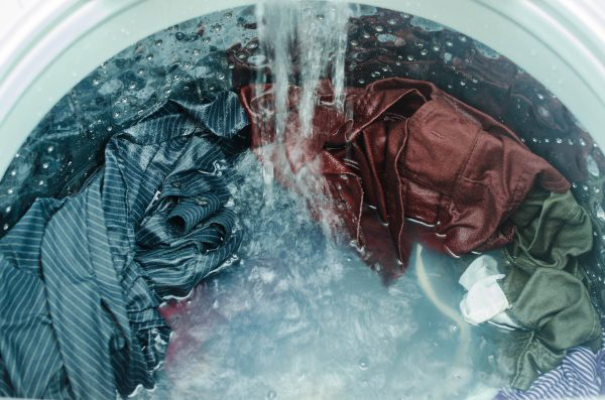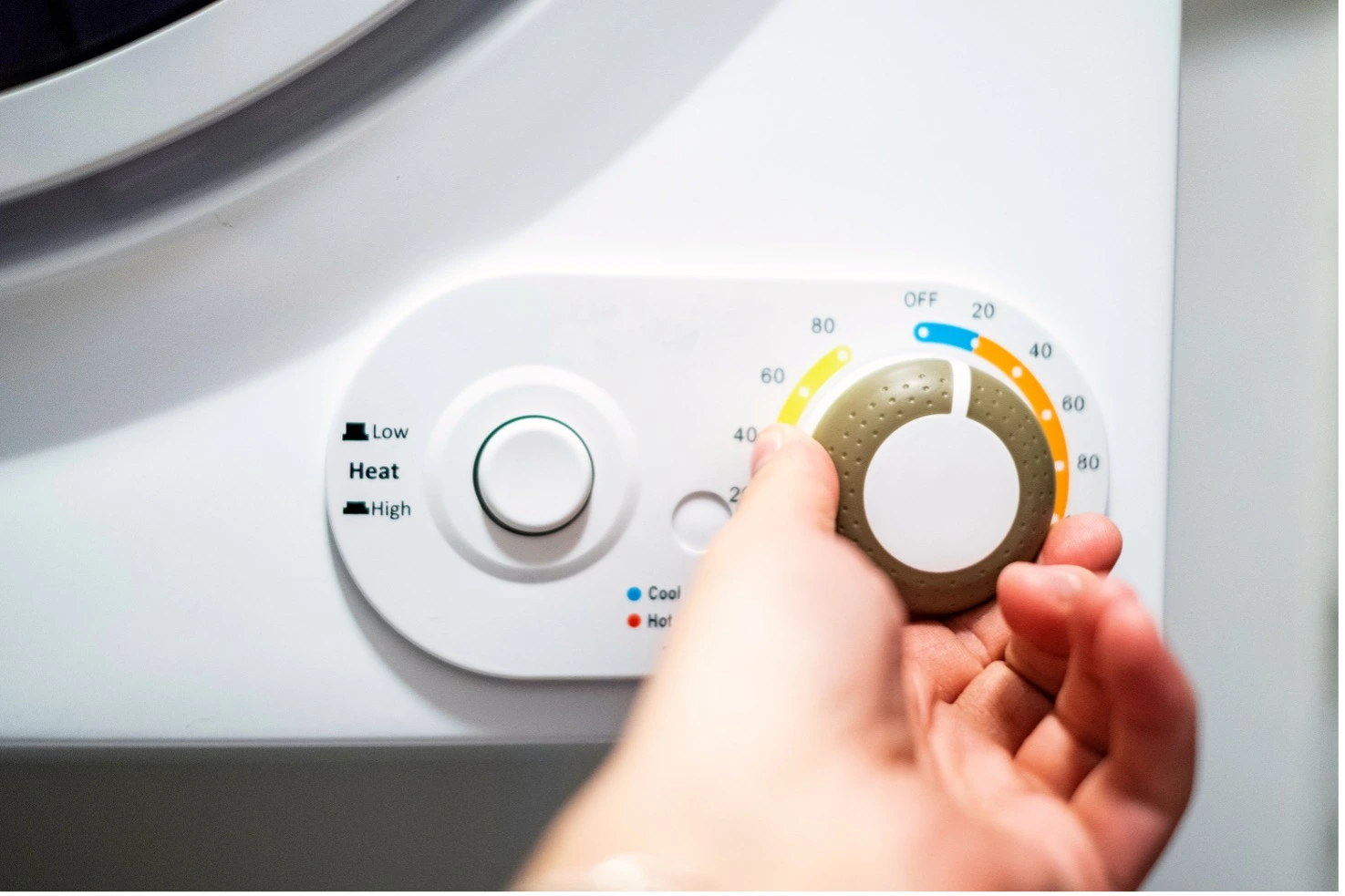
Mosquito Joe provides insights on whether washing machines can kill ticks.Ticks are tough pests that can survive standard wash cycles, but high-heat drying is a proven way to help eliminate them. At Mosquito Joe®, we’re here to share expert-backed tips to keep ticks out of your home—starting with your laundry routine and extending to trusted professional tick control services. Since ticks can be dangerous to humans and pets, you may be wondering how to ensure they aren’t thriving in your home. If they make their way in on your clothing, can ticks survive the washing machine and dryer? Can you wash off ticks, or is soap and water pointless? If ticks hitch a ride on your clothes, here’s how to increase your chances of killing them during the laundry process:
|
Ticks are extremely resilient creatures that can survive a range of temperatures and conditions. That’s why many people ask questions like "can ticks drown" or "can ticks survive in water". While it seems like the washer or a long soak might be enough to kill them, the truth is more complicated.
Learn more about whether ticks can die in the wash, why they’re so resilient, and ways to help control them, such as with professional services from Mosquito Joe®.
What Happens When You Put Ticks Into a Washing Machine?
Ticks are unlikely to die in the washing machine, even with hot water and plenty of detergent. They are well-equipped to hide in crevices and folds of your clothing for protection. They also latch on firmly to withstand being tossed and turned, so they usually don’t dislodge from your clothing once they get tossed into the washer.
Ticks are also able to survive submerged in water for up to three days because they trap oxygen from water in tiny, hydrophobic hairs on their bodies. So if you’ve been wondering can ticks drown, the answer is not quickly—an hour in the washing machine won’t necessarily do the trick. They’re surprisingly well adapted to survive that environment. If a thorough wash and rinse cycle won’t kill them, what can you do to eliminate these potentially dangerous pests?
Can Ticks Survive a Hot Wash Cycle?
You may wonder, can ticks survive washing machines on the hot cycle? Research is mixed on whether or not ticks can survive in the washing machine with very hot water. If temperatures reach above 130℉, ticks are less likely to survive. However, many washing machines don’t reach temperatures that high, and you may not want to wash your clothes in water that hot due to potential shrinkage.
Does Detergent Kill Ticks?

Unfortunately, laundry detergent also does little to combat ticks. While it could help dislodge the theme from your clothes mid-cycle, it’s usually not strong enough to cause damage. Ticks are equipped with a strong exoskeleton that enables them to withstand chemicals and conditions that could otherwise harm more sensitive pests.
Do Ticks Survive in the Dryer?

While ticks can survive most washing machine cycles, they may not make it in the dryer. Most ticks will die after tumbling around for 30 minutes or more at high heat, though many can survive a “no heat” dryer cycle. Surprisingly, it’s not the heat that actually kills them—it’s the dryness. Ticks require moisture to survive and are more likely to die in very dry conditions, like those created inside a hot dryer. In fact, some people will put their clothes in the dryer before washing them if they’re concerned about ticks. In most cases, it will take just about 6-10 minutes on a high-heat cycle.
Laundry's Not Cutting It - Let the Pros Take a Spin
Why Ticks Can Survive in Water and Other Conditions
As you may already know, ticks are tough. They can survive underwater and in extreme conditions. They’re also really hard to crush. What tick traits make them so difficult to get rid of, even in a vigorous laundry cycle?
- Climate resilience: Nymph and adult ticks can survive very high and very low temperatures. This enables them to live through seasonal fluctuations.
- Ability to stay hydrated: Ticks can absorb water from the air in times of high humidity, helping keep them from drying out. They also seek out moist areas to survive in dry conditions.
- Ability to breathe underwater: Small hairs on ticks’ bodies allow them to trap air and breathe even when submerged underwater. Thanks to their ability to trap oxygen, ticks can survive in water far longer than most people realize.
- Unique host detection: Ticks need hosts to thrive and are equipped with the tools they need to detect carbon dioxide effectively.
- Firm attachment: Ticks don’t easily fall off of their hosts. They embed themselves in the skin, allowing them to feed continuously unless they are firmly removed.
All of these circumstances aside, ticks can also survive for days or even weeks without food. This makes them more resilient than other pests that typically rely on regular food and water to stay alive. These adaptations also mean that even your washer and dryer may not be enough on their own—especially when it comes to water exposure. If you're still wondering "can ticks drown" or "can ticks survive in water", the answer is yes, but not quickly. That’s why combining smart laundry habits with professional tick control is your best bet.
Ticks Are Tough. I Need Tougher Help.
Tips for Eliminating Ticks in the Laundry
Want to be certain you kill ticks in the laundry? Here are some tips and tricks for getting ticks out of your clothing.
- Check yourself and your clothing for ticks prior to entering your home. Remove any clothing that could be holding the pests.
- Consider tossing your clothes into the dryer for a short cycle, on hot, before washing.
- You may also consider putting your clothes in a bag in the freezer before washing them to get rid of potential pests at low temperatures.
- Place soiled clothing in the washing machine, and use the hottest water setting along with your regular detergent.
- After washing, immediately place the clothes in the dryer and dry on high heat.
When you are outside, consider places where ticks are most prevalent. For example, hiking through wooded areas or along grassy paths could make you more susceptible to bringing home ticks on your clothing. And with their strong latch, simply shaking out your clothes isn’t likely to do the trick.
Other Forms of Tick Control to Consider

There is no doubt that ticks are difficult to get rid of. The best way to deal with ticks is to avoid them as much as possible. But if you enjoy the outdoors, that’s not always easy. Luckily, Mosquito Joe is here to help with tips, tricks, and professional services.
- Avoid places where ticks are most prominent.
- Wear protective clothing that covers your skin, and tuck in your shirt and pants when possible to close off potential entry points.
- Utilize tick repellents, especially those that contain DEET, which can also help deter mosquitoes.
- Maintain your property by keeping your grass and bushes trimmed. Avoid stacking piles of wet wood and clean up piles of dead leaves and litter.
Layer these basic tick prevention methods with professional services for the best potential outcome. Mosquito Joe offers tick control services that help get rid of even the toughest ticks on your property and keep you and your family away from ticks and all kinds of biting insects.
Reach out today to schedule a consultation and get a free estimate. When you’re ready to pursue tick control, know that our work is backed by the Neighborly Done Right Promise® and our own Mosquito Joe Satisfaction Guarantee to give you added peace of mind.
FAQ: Do Ticks Die in the Washing Machine?
How long does it take to drown a tick?
Ticks can survive underwater for two or three days before they finally drown. Beyond that, they’re built tough—with hard shells to protect them, the ability to go months without food, and the resilience to withstand both extreme heat and cold.
Is Washing Clothes Enough to Remove Ticks?
Not typically, no. Washing can help dislodge some ticks; however, many are tough enough to survive a standard wash cycle, especially if the water isn’t very hot. Your best bet is to wash clothes in hot water (130°F or higher) and then dry them on a high-heat setting for at least 10 minutes. If you want to protect your property and loved ones against the threat of ticks from the get-go, Mosquito Joe's professional tick control services can help reduce the risk.
Do ticks die in the dryer?
Yes, most ticks die after being exposed to high heat in the dryer for at least 10 minutes. It’s not just the temperature; it’s the dry environment that kills them.
This article is intended for general informational purposes only and may not be applicable to every situation. You are responsible for determining the proper course of action for your home and property. Mosquito Joe is not responsible for any damages that occur as a result of this blog content or your actions. For the most accurate guidance, contact your local Mosquito Joe location for a comprehensive, on-site assessment.
